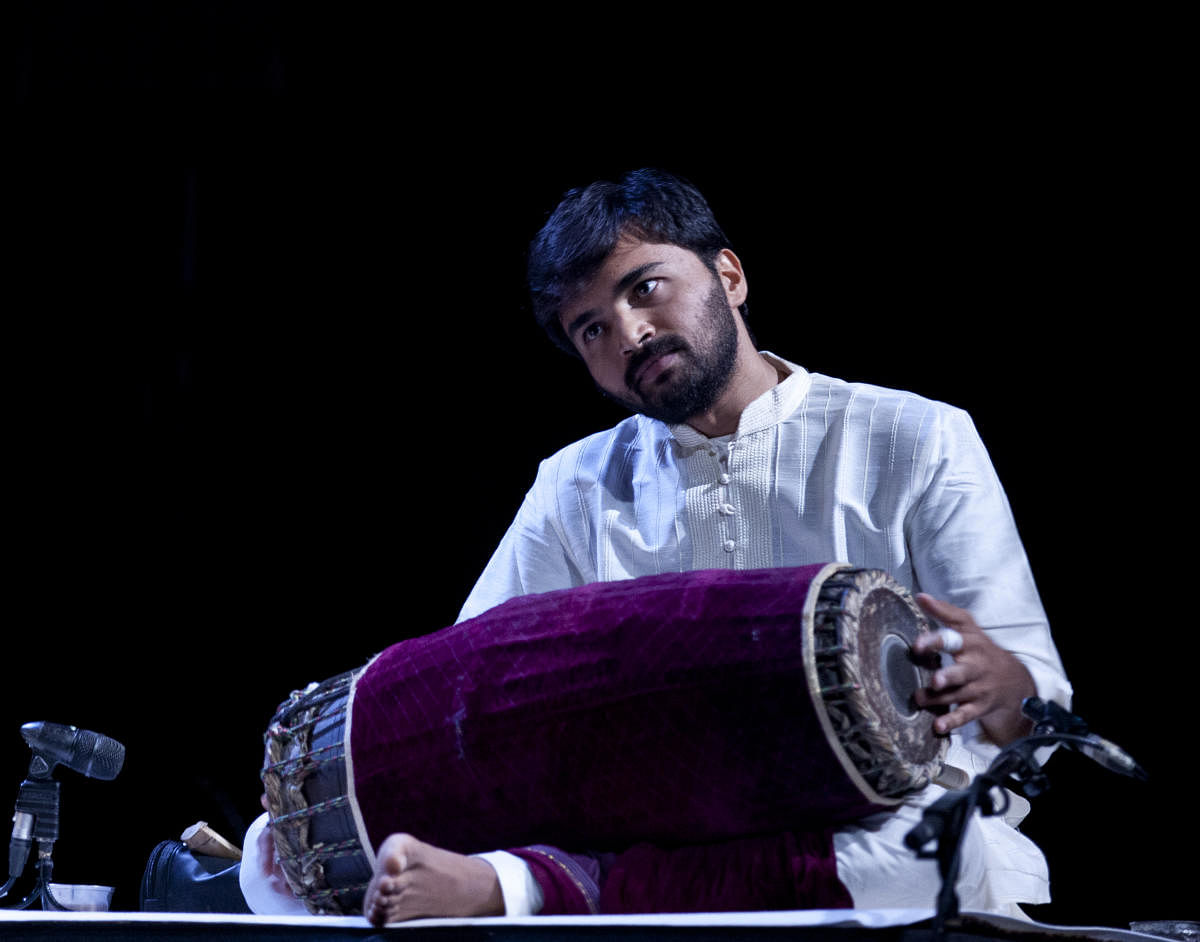
When music runs in the blood, it is quite natural for a gifted musician to move back to his/her roots, where an array of instruments eagerly await the person’s arrival. It was literally the calling of those instruments that brought Anantha R Krishnan, the grandson of mridangam maestro Palghat R Raghu, from the US to Chennai in 2011.
He was hardly four years when he shifted from Chennai to the US, but even as a kid, his deft, tiny fingers used to create magic on the mridangam. “In 2009, my grandfather died and he had this whole infrastructure for mridangam in place. Also, I had completed the Masters of Fine Arts in Electronic Music and Percussion from Mills College, California. I just thought to move because those instruments kind of called me, and it was the best decision without realising that something best was in store for me,” says Anantha, who also teaches at A R Rahman’s KM Music Conservatory.
A legacy
The sound of mridangam has always been there with Anantha, as he shows a documentary on his grandfather, where a three-year-old Anantha, hooked to the magic of mridangam, is sitting next to his grandfather and playing on a bag, assuming it to be mridangam.
“Even before learning to read or write any language, I started playing the mridangam,” says the mridangist, who has also been a special interest student of tabla under Ustad Zakir Hussain. Together with tabla virtuoso Zakir Hussain, Anantha has given numerous performances, and he says, “It’s a privilege.”
Feeling the pulse
As a percussion player, he has played extensively, in various venues. He has travelled across the world and collaborated with many famous musicians. When asked about the audience response in India and abroad, he recalls a concert in France where the audience, towards the end of the performance, clapped for 17 minutes. “Unlike in India where you hear shabash and wah in the middle of the concert, the audience in France waited till the end of the performance and applauded,” says Anantha. He continues, “It is not all about clapping. Just because someone doesn’t clap doesn’t mean that they are not listening, and just because someone claps doesn’t mean that they are listening. It’s about something else. You (the performer) and them (audiences) establish a connection and energy. Without the audience, the music will also be different.”
From the audience, the conversation moves to the interesting aspect — the making of the mridangam. Usually made using jackfruit wood, it involves detailed craftsmanship. Anantha says that it is a labour-intensive one and the mridangam that he has at present is 85 years old. “Four or five communities come together and work. It’s totally a custom-made one,” says the acclaimed mridangam player who has a collection of over 25 mridangams. Indian music is a performance-driven one, and is totally designed as stagecraft, explains Anantha, adding that even eloquent silences that are built into the music are designed with the audience in mind. The mridangist also conducts workshops and says, “These workshops are a way for me to learn, learn about my own content, and they are very exciting. I want to do these workshops often, but they are time-dependent. In the first week of July, we conducted a workshop in Palakkad and the other one will be held during Diwali time in Tiruvannamalai, Tamil Nadu. It will be more intense as all the participants are artists.”